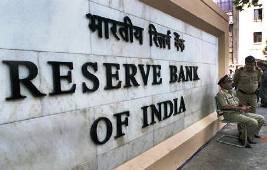As it stands, the legislation does not explicitly define control or link it to investment levels: it allows corporations the flexibility of deciding on control and management.
 The year 2012 did not bring a great deal of cheer to those foreign direct investors who had already put their money in India, and certainly dissuaded those who were considering that option.
The year 2012 did not bring a great deal of cheer to those foreign direct investors who had already put their money in India, and certainly dissuaded those who were considering that option.
Tax administration was the biggest proximate cause, but opacity in investment rules also played a role.
In that sense the Reserve Bank of India’s belated move to clear ambiguity over the issue of 'control' of an Indian entity that has foreign investment may lighten the mood a little.
Its draft norms, to be issued under the Foreign Exchange Management Act, seek to align the definition of control with the Companies Bill, 2012, which is awaiting passage by the Rajya Sabha.
As it stands, the legislation does not explicitly define control or link it to investment levels: it allows corporations the flexibility of deciding on control and management.
This would have been unexceptionable -- had it not been for the confusion caused by Press Notes 2, 3 and 4 of 2009.
Among other things, these press notes lumped foreign direct investment and investment by foreign institutional investors together to account for sectoral caps on foreign investment and linked the level of foreign shareholding to control, deeming that a foreign-controlled Indian company would mean any company in which over 50 per cent of the capital was beneficially owned by foreigners.
The big idea behind these notes was to prevent companies in industries with sectoral caps on foreign investment from making downstream investments that would circumvent these limits.
For example, companies such as retailer Pantaloon and media house UTV restructured their organisations to raise foreign capital in their businesses through step-down joint ventures (FDI was prohibited in multi-brand retail at the time and is restricted to 26 per cent for the media).
But the press notes also had the inadvertent and bizarre effect of deeming several other corporate entities foreign-owned and -controlled owing to their combined FII and FDI holdings, even though such institutions were patently controlled by Indians.
This restriction, in turn, would have impacted these institutions’ downstream investments, for instance, in insurance, where the FDI limit is pegged at 26 per cent.
What the new RBI norms would do, subject to approval from the Cabinet Committee on Economic Affairs, is to define control as the right to appoint a majority of directors on board or to control management and policy decisions, issues that companies typically spell out in their articles of association anyway.
That is how, for instance, the Tata group was able to retain management control of what was then called Tisco even though several Birla firms collectively owned a larger stake in it than the Tatas through the eighties.
The draft norms, however, would go some way towards clearing up a critical issue, though not, perhaps, as much as both domestic and foreign investors would like.
If this controversy underlines anything for the nth time, it is the urgent need to undertake a quick review of the caps on FDI in various sectors, so that the current restrictions could be suitably relaxed as well.
That exercise would also be in tune with the government’s stated intention of easing foreign investment flows to bridge the widening current account gap.












 © 2025
© 2025